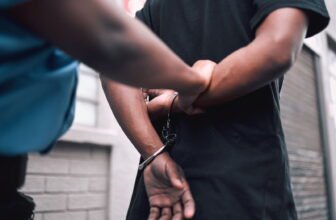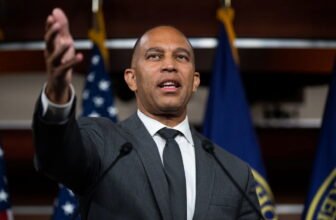
July 12, 2025
Nigerian Foreign Minister Yusuf Tuggar quoted Hip-Hop to explain the country’s reluctance to cooperate with Trump: ‘In the words of the famous U.S. rap group Public Enemy — you’ll remember a line from Flava Flav: ‘Flava Flav has problems of his own. I can’t do nothing for you, man.’”
In response to a Trump administration proposal that Nigeria accept non-U.S. citizens from multiple countries for deportation, Nigerian Foreign Minister Yusuf Tuggar pushed back, quoting rap group Public Enemy to explain the country’s reluctance to cooperate with the U.S. State Department.
As NPR reports, Foreign Minister Tuggar told Nigerian outlet Channels TV on July 11 that the country has its own internal priorities to attend to, quoting Public Enemy’s resident hypeman turned beloved public figure Flava Flav in the process.
“We already have over 230 million people,” Tuggar told the outlet. “In the words of the famous U.S. rap group Public Enemy — you’ll remember a line from Flava Flav: ‘Flava Flav has problems of his own. I can’t do nothing for you, man.’”
He continued, “It will be difficult for a country like Nigeria to accept Venezuelan prisoners into Nigeria. We have enough problems of our own. We cannot accept Venezuelan deportees to Nigeria, for crying out loud.”
Tuggar also indicated that in addition to Nigeria, the United States has been pressuring other African nations to accept foreign nationals whom it decides to have deported.
Although other reports have corroborated Tuggar’s assertion of American pressure on countries like Djibouti, Rwanda, and South Sudan to accept deportees, some of which have assisted the state Department in the process, the state department has not officially confirmed that it is actively pressing African countries to assist in its deportation efforts.
This was, of course, precipitated by the Supreme Court’s July 3 order establishing that the Trump administration could deport eight men to a makeshift detention center at a United States naval base in Djibouti, a country in East Africa, before they were sent to their end destination: war-torn South Sudan.
The decision was met with strong dissent from the Supreme Court’s liberal justices, who raised concerns about the implications of the ruling. In a joint dissent regarding the deportation of individuals to South Sudan—a country with a documented history of conflict and human rights abuses—Justices Ketanji Brown Jackson and Sonia Sotomayor, joined by Justice Elena Kagan, expressed concern that the ruling was made “without regard for the likelihood that they will face torture or death” upon return.
According to The Wall Street Journal, the ruling appears to have reinforced the Trump administration’s approach to deportation policy. The report notes that former President Trump referenced a recent State Department request sent to five African nations ahead of a July 9 White House summit focused on economic and security issues.
Per their reporting, the state department requested that Liberia, Senegal, Mauritania, Gabon and Guinea-Bissau each take in migrants, which Trump seemed to point to in his remarks at the summit.
“I hope we can bring down the high rates of people overstaying visas, and also make progress on the safe third country agreements,” Trump stated in his opening comments.
According to the Wall Street Journal, United States diplomats are also informing officials from those governments that their assistance in the United States’ effort to increase its deportation to third-party countries is encouraged if they want to improve their commercial ties with the United States.
Based on their responses, many of which pitched the untapped mineral resources in their countries, the leaders of those nations seem eager to engage in this blatantly transparent quid pro quo arrangement.
In a conversation with Politico, Tom Homan, the Trump administration’s border czar, admitted that if countries do not acquiesce to the desires of the administration, it will search until it finds a country that does.
“When you’ve got countries that won’t take their nationals back, and they can’t stay here, we find another country willing to accept them. If there is a significant public threat or national security threat — there’s one thing for sure — they’re not walking the streets of this country. We’ll find a third, safe nation to send them to, and we’re doing it,” Homan said.
RELATED CONTENT: Duke Basketball Star Could Face Deportation Under Trump Ruling Against South Sudan






